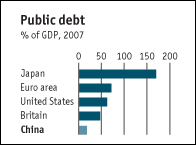The International Monetary Fund (IMF) is an institute of 186 states, functioning to promote international financial support, protected monetary firmness, smooth the progress of global trade, endorse high employment and maintainable financial expansion, and decrease scarcity around the globe (Barbara 2003). So from this definition, it is palpable that International Monetary Fund is working in collaboration with other countries to uplift the financial conditions of developing countries and to fight against recession.
World Bank
World Bank is supposed to provide developmental assistance to third-world countries or developing countries. It offers loans and financial, moral support and also gives training in the private as well as public sectors (Reem 2009). Overall its main purpose is to provide full support to countries so that they might be able to survive and progress to achieve their financial goals. As it is an international organization, so it has 186 countries as its core members. Membership cannot be gained directly, however first the country has to join International Monetary Fund to become a member of the World Bank.
World Bank, IMF, and global finance
Now moving towards global finance, both the institutions i.e. World Bank and International Monetary Fund are responsible to resist financial crises around the globe. Global finance is to provide sufficient support to countries facing financial crises by investing in their markets to bring them back into the normal financial cycle. Global financial crisis results in recession and hence results in unemployment as markets are collapsed, so businesses are automatically closed in this situation. So in a crisis, IMF and World Bank work in collaboration to support the economy of any specific country. Recession affects the stability of the world economy that is why developed countries provide more and more funds to invest in undeveloped countries to minimize the financial risks (Nagesh 2009).
So there is a direct relationship between the International Monetary Fund and World Bank i.e. they control the global financial crisis. International Monetary Fund provides the medium or plat form through which a country can demand for sufficient funds to regain their economic position and the funds are provided by World Bank. So this is the process through which International Monetary Fund and World Bank is controlling global finance.
China

This graph is showing the position of China as compared to other developed countries. China holds the strongest position and this is due to its progress in public sector. In the recent years, China changed its facial policy; as a result China is enjoying strongest position and boom in its economic state. China is giving more attention towards its pubic sector and emphasis to promote international trade, which helps China to grab further market share in the international markets (Eswar and Steve 2004).China is also under threat of recession and financial crisis in coming years due to the present recession in the world economy.
It has decided to rescue this downfall in the global financial structure by contributing large amounts in order to avoid future dangers. This is very optimist approach of China’s government, as they don’t want to lose their existing position and international market share. However, unemployment and market crisis at lower level have been identified in China. So this is alarming signal for China to take appropriate measures in order to sustain their economic position in future. So, this is a brilliant example that explains the concept very clearly that there is a connection between the International Monetary Fund and World Bank in controlling global finance.
Bibliography
Books
Eswar, P. and Steve.B.(2004) China’s Growth and Integration into the World Economy: Prospects and Challenges,1st ed.,London: International Monetary Fund.
Barbara,I. (2003) International Economics: A European Focus, 1st ed.,London: FT Prentice Hall.
Websites
Keynes, I. (2008) ‘China’s fiscal stimulus’, The Economist. Web.
Nagesh, K. (2009) ‘ Mitigating global financial crisis’, The Economic Times. Web.
Reem, H. (2009) ‘What is the World Bank’, Investopedia: A Forbes digital company. Web.